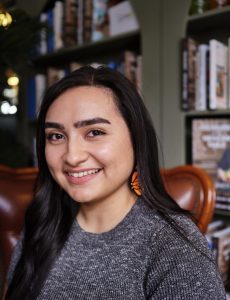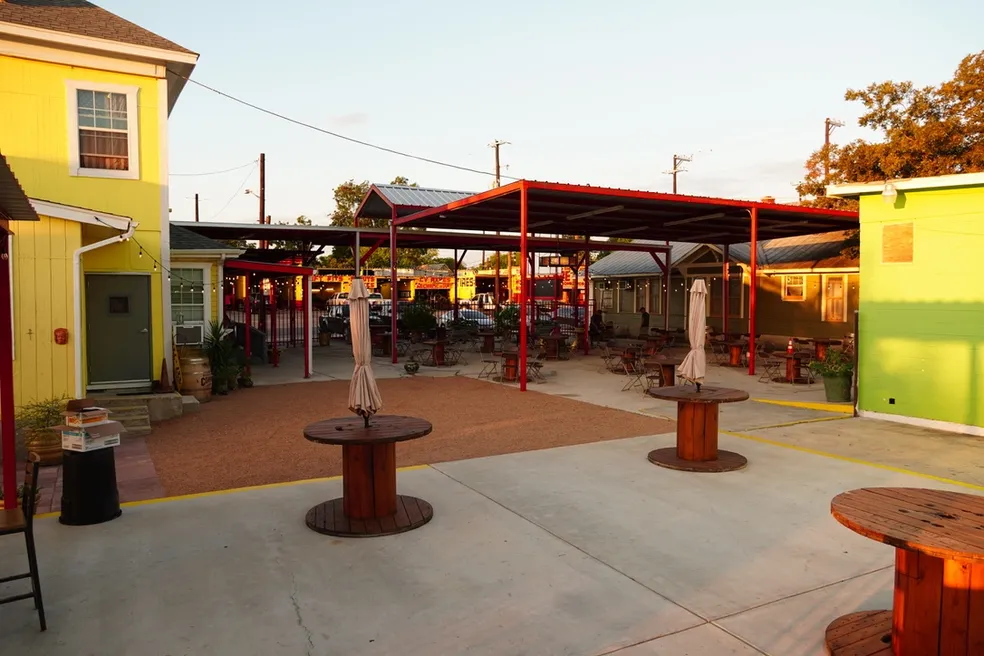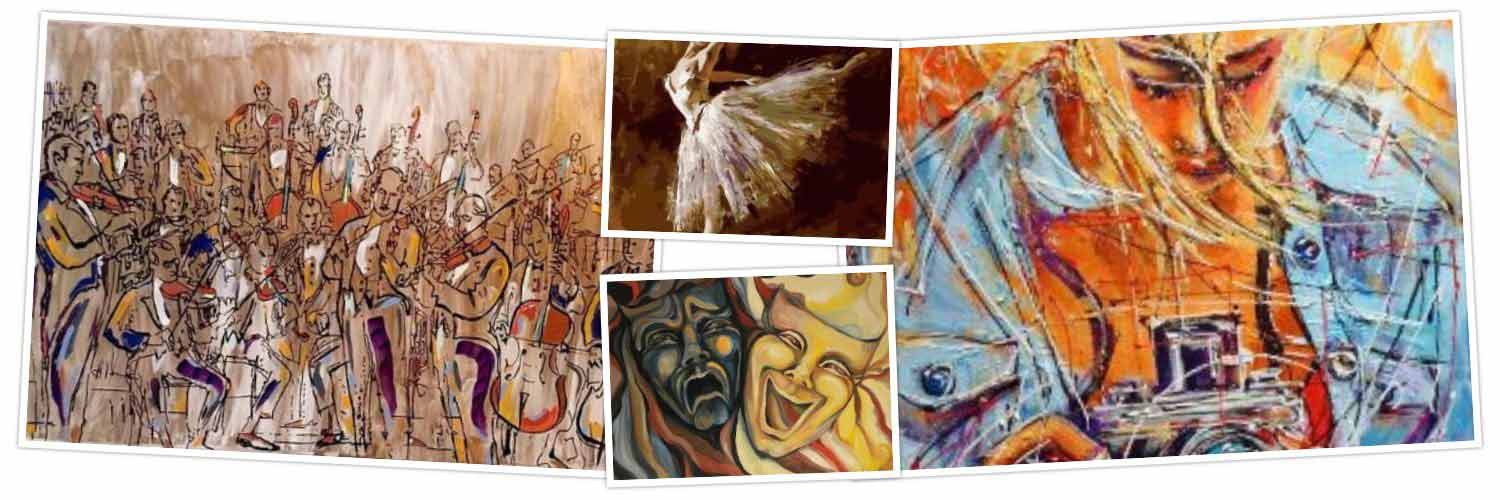“Latina Spring” Film Series Explores Identity and Change
By STEPHANIE SCHWARTZ, contributor
Esmeralda Hernandez tells the story of how four generations of women pass on dreams and knowledge. Her film, “Dream Carriers,” is set on the West Side, where Hernandez spent much of her youth. “It’s a short love letter and poem style film, dedicated to San Antonio,” she says.

Hernandez ties her story of change and transition to the migration of monarch butterflies. “Every time a monarch passes through, it is a passage of dreams that weren’t realized by the parent and are passed on to the children,” she says. Alongside this lyricism, Hernandez is intent on portraying the local experience with an accuracy and respect she feels it does not often receive.
Her film will be part of the upcoming Watcha! “Latina Spring” film series, organized by Manuel Solis, that focuses on the experience of Latinas as they interact with the families that have shaped them and move on to become adults that will carve out their own futures. Six short films by Latina and Indigenous filmmakers follow women as they experience the legacies passed down from previous generations and test new roles within their communities.
In her film “Las Artivistas: The Journey from Artist to Activist, filmmaker Guillermina Zabala, a long-time San Antonio resident originally from Argentina, has documented a progression she has often seen among young Latina artists, in which they move from an exploration of personal stories to a focus on stories that deal with social issues. “As they explore their art, they use it to discover their own roots,” says Zabala. “When they discover those roots and the injustices happening to their community, they use their art to shine a light on those injustices.”
Zabala was the director of the media arts program at SAY Sí, a nonprofit creative youth development program . Her film highlights three young artists that she saw grow and change during and after the program. Hernandez is one of these artists, as are Sarah Tijerina, a poet and performer, and Bianca Martinez, a photographer. Along with showing the move towards activism, Zabala says the film presents “beauty, diversity, history and being proud of where we come from.”

A third Texan filmmaker in the series is Sharon Arteaga. Originally from Corpus Christi, she now lives in Austin. Her film “When You Clean a Stranger’s Home” is a cinematic essay in which a first-generation high school student, Abby, describes what she and her mother learn about people while cleaning their homes. What she sees and the privilege it suggests play into Abby’s imagination, jealousy and frustrations.
Arteaga’s work explores what she describes as a conflicted upbringing as first-generation Mexican American. In her director’s statement, she writes: “‘When You Clean a Stranger’s Home’ intends to honor and empower female domestic workers while exposing audiences to who they are as people and the next-generation Latinx perspectives held by their children.’” The film won the HBO Latinx Short Film Competition and can be viewed on HBO Max.

Three of the short films come from outside of Texas. “Long Line of Ladies,” by indigenous filmmaker Shaandiin Tome and Academy Award winner Rayka Zehtabchi won the grand jury prize for best documentary short at SXSW Film 2022. This film may be the most literal representation of Latina Spring’s themes, as it involves preparation for a formal rite of passage. Ahtyirahm “Ahty” Allen prepares for her “Ihuk” or Flower Dance, a coming of age ceremony of Northern California’s Karuk Tribe. The film shows Ahty in contemporary Karuk culture, preparing to undergo a traditional ceremony guiding her from girlhood to womanhood, with the strength and complexity of her community beside her.
“Mujer de Tierra (Woman of the Earth)”by Mexican filmmaker Evelyn Mercedes Muñoz Marroquín presents women at another stage of life. The film shows women of the Nahua community of Hueyapan, in the Mexican state of Puebla, who through their embroidery work and their self-belief have joined forces to transform themselves and the dynamic of their community. The film shows women having the strength to go it alone, rebelling against the prescribed dynamic between men and women when it does not serve them. A woman featured in the film explains, “At first it was courage, then rebellion, and now it is resistance.”
“What We Just Don’t Tell Our Girls” also has a focus on self-appreciation and empowerment. The film, by Monica Crystal Ocegueda, a California filmmaker, reflects on society’s treatment of women from adolescence to adulthood. As the protagonist grows and learns lessons of self-love and acceptance, the question arises: Why don’t we just tell girls these things as they are growing up?
You can see these movies at the screening that will take place at Jaime’s Place, on the West Side, just past the Commerce Street Bridge. Owner Jaime Macias opened the bar in 2020 with the intention of creating a space to highlight and preserve the culture of the West Side. As development moves in, he wanted long-time residents to have a place to drink and dance in an environment that celebrates their culture.
Watcha! organizer Manuel Solis attended a night market at Jaime’s Place and saw the strong connection the bar had with the community. He felt it was a natural place to screen the first Watcha! series, which was shown this past October. Solis runs MonteVideo, an organization that supports screenings of Latinx-themed independent films for underserved communities through non-traditional venues.
The first Watcha! series featured films with a musical component. “A lot of what draws people there is the culture and music. Brown-eyed soul,” he says, “So I wanted films to have a loose connection with music.”
This spring, in honor of Women’s History Month, MonteVideo is aiming to amplify the voice of women filmmakers. “These films show the journey from adolescence to womanhood,” says Solis. “What are some of the challenges? What is some of the trauma that is handed down? How do you move past that and evolve?”
The connection between mothers and daughters drew Solis to the films, as did dynamics within immigrant families. “These are people whose voices aren’t usually heard,” he says. “It’s really important for girls and young women to have access to these stories.”
———————————————————————————–———————
Watcha! “Latina Spring” Film Series; Thursday, March 30 at 8 p.m.; Jaime’s Place,1514 W Commerce St.,210-564-9083, free
